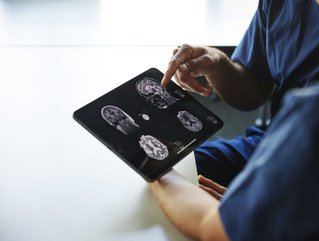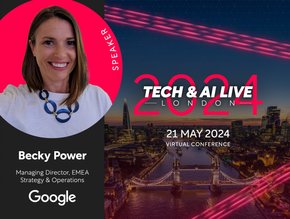Technology solutions are at the heart of healthcare

These are challenging times for the healthcare industry. The sector is facing a staffing crisis globally, and people are leaving the profession faster than ever before.
In the wake of the COVID-19 pandemic the World Health Organisation estimates that by 2030 there will be a global shortfall of 10 million health workers, while research shows that demand for healthcare is only set to increase.
And with research by the American Medical Association finding that 63% of physicians reported feeling burned out in 2022, the use of innovative technology can play a critical role in solving some of those problems.
With services under more pressure than ever, healthcare staff need technology solutions to help them manage increased demand and provide meaningful solutions.
“Microsoft is very unique in that the ethos around how we deliver a solution using technology is very much about putting the patient and the healthcare worker at the centre,” describes Hema Purohit, Chief Architect and CTO Healthcare across EMEA for Microsoft.
“Everything that I do is focused on putting myself in the shoes of that patient or of that healthcare worker to see what can we do around helping with burnout, how we can help with fatigue, and how we help with technology debt.
“How do we create tools that help people to collaborate faster, more accurately, and help people to do their jobs? How do we take away that manual overload to be able to give those frontline workers the space, the thinking time that they need to spend more time with patients directly? How do we use AI to reduce waiting times, and use AI in research analytics to provide more results faster?”
The challenge of integrating technology in healthcare settings
How healthcare organisations actually go about integrating technology is often easier said than done.
“This is where I think that knowledge of the industry is really important,” Purohit comments. “When we're talking about automation tools, or we're talking about creating cloud solutions where people can do research and analytics, it is really important to understand how they will feed into the pathway that you're trying to deliver.
“From a patient perspective, but also from a clinician's perspective, at which point do those tools come into your day job? That's really important. So if we want to integrate a tool, we know that it has to become part of somebody's normal value. If it becomes something that you have to do in addition to your day job, it's not going to work.”
With issues such as burnout causing significant issues in the healthcare industry, there will always be challenges to overcome. “The world is changing so rapidly and so quickly that even if we get over today's set of problems, we know that there's going to be a set for tomorrow. So I think being able to integrate efficiently is understanding the systems that you're working with, understanding the workflows, both from a system perspective, and application perspective, but also from a manual perspective.
“So as a doctor, as a clinician, as a surgeon, what are the steps I take to be able to get through my day? And at which points can I actually use that technology? That's very, very important.”
When looking at technology transformation initiatives, the same obstacles come up again and again: cost and time.
“In the past, if we look at legacy transformation programs they might have cost millions upon millions of dollars and taken 20 years,” Purohit comments. “But we don't need to do that anymore. Technology is at its best when it's simple, when it can be adopted by multiple users, of multiple ages.
“It actually solves the problem on both sides of the use case. So from the person who needs to use it to the person who's going to receive the benefit of it at the end of it. It's putting yourself in the shoes of that person that you're trying to help and making sure that you're giving them something that's going to add value.”
The most effective technology can be the most simple, Purohit describes.
“I would say that the best technology is usually the stuff that's very, very simple. How can I automate scheduling? How can I actually automate my rotor? How can I make sure that, when my staff are going home at 3 am, they've got some sort of buddy system that make sure that they've actually got time safely and securely? Those things are a huge amount of value.
“And if you can get the adoption correct in those things, then the larger transformation programs become much easier to navigate.”
The need to address ethical concerns
Technology today is moving at a particularly rapid pace. But with advancements in AI, it has never been more important to consider the ethical considerations when dealing with patients’ confidential data. As Purohit explains, ethical concerns when it comes to technology are very much valid.
“Technology moves forward at a very, very fast pace. Particularly today, there are a lot of new developments, especially around AI, where the technology is developing faster than we can put the governance models in place. Everything needs to be governed, and everything does need to have an ethical base as well.
“Technology is a very exciting space, but I'm also a realist and there needs to be a balance between the two. Before all of the fantastic visions we have become a reality, there does need to be a little bit of grounding. We need to take a little bit of time to just stop, make sure that we're addressing those concerns and that actually everybody is working to a consistent set of guidelines and framework.”
- OpenText CEO Roundtable: The Future of Safe Enterprise AIDigital Transformation
- OpenText AI: Empowering Businesses in Information ManagementDigital Transformation
- Tech Leaders Launch AI Consortium to Upskill WorkforcesAI & Machine Learning
- Fujitsu: Leading digital transformation in fintechDigital Transformation






